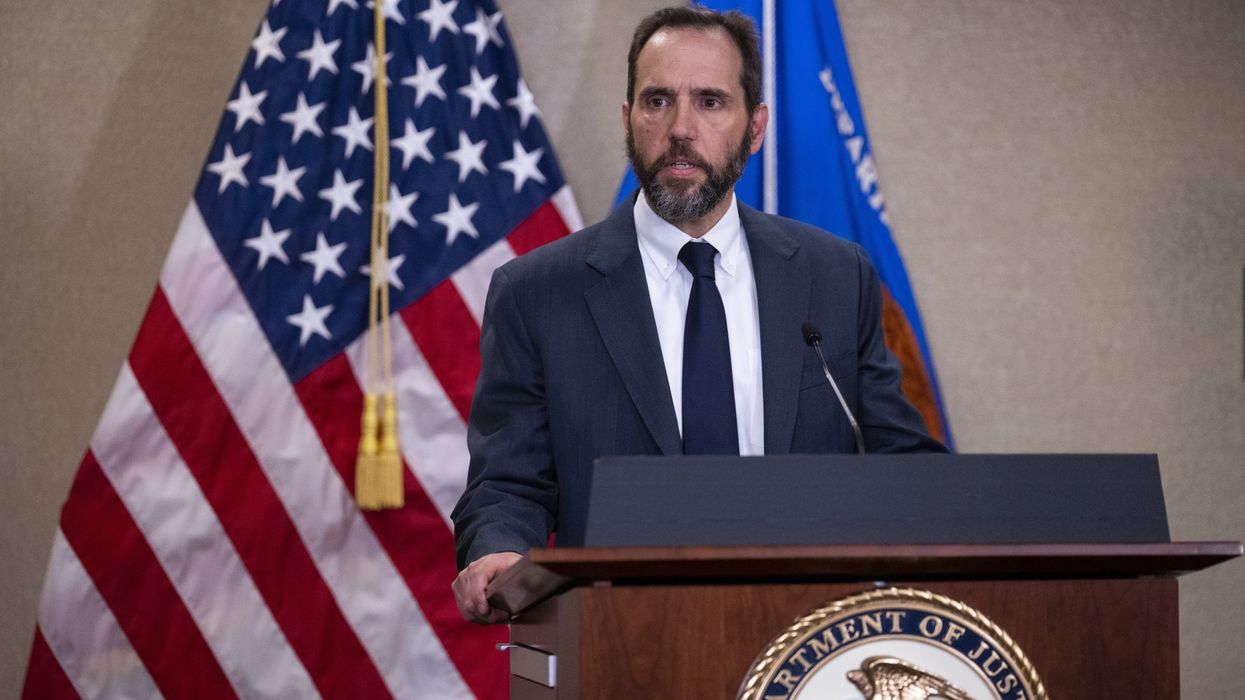April, 24 2019, 12:00am EDT

Hydraulic Fracturing Scorecard: Concerns Remain Regarding Disclosure of Water and Chemicals Management
OAKLAND
Shareholder advocacy group As You Sow and investment advisory firm Boston Common Asset Management released today Disclosing the Facts 2019: Transparency and Risk in Water & Chemicals Management for Hydraulic Fracturing Operations. This report is the next installment in a series of scorecard reports designed to promote improved disclosure and corporate responsibility in the oil and gas sector.
The report's authors reviewed the 30 largest publicly traded producers of oil and gas in North America in an effort to identify those companies using and disclosing current best management practices. Key findings include:
- Top scoring companies included: Southwestern Energy (NYSE: SWN), Apache (NYSE: APA), Anadarko (NYSE: APC), and Range Resources (NYSE: RRC)
- Bottom scoring companies included: Gulfport Energy (NYSE: GPOR), Continental Resources (NYSE: CLR), Total (NYSE: TOT), and EOG Resources (NYSE: EOG)
- Areas most disclosed by companies include: information on "near misses" or close calls; practices for maintaining well integrity; and percentages of water recycled in each operating area/region
- Companies most often failed to disclose information on: reductions in chemical toxicity and pre- and post-drilling water quality monitoring practices
"Our report shows that smart use of water and chemicals continues to evolve, but more needs to be done," stated Steven Heim, managing director and director of environmental, social, and governance (ESG) research at Boston Common Asset Management. "Proactive companies adopt, develop, and disclose current best practices outlined in our report such as reducing freshwater use. This enables investors to assess and compare how well companies are reducing costs and risks -- including how well they manage environmental and community impacts resulting from their hydraulic fracturing operations."
Water is a vital resource, the availability of which has extensive impacts across the economy. Investors' increasing focus on water and chemicals reflects the role this resource has on companies' ability to operate, as well as the impact companies have on water availability and water quality in areas where they are located.
"As climate change increases water scarcity in certain regions, investors need assurance that companies are responsibly managing the amount of water they use to protect communities, the environment, and other water users," said Danielle Fugere, president at As You Sow. Climate change and the potential for drought, can negatively impact areas such as Texas where 51 percent of wells are in high or extremely high stressed water regions.
"The best companies are increasing their water efficiency, re-using water from operations, using non-potable waste streams, and even treating wastewater," said Lila Holzman, energy program manager at As You Sow.
The process of hydraulic fracturing also uses a range of chemicals, raising the risk of unintended toxic releases that could result in water contamination. "The potential for water contamination has appropriately been one of the major concerns affecting companies' social license to operate," said Fugere. "People's lives are at stake, so company practices matter, both in preventing problems in the first instance and acting responsibly when problems occur." Eliza Griswold's Amity & Prosperity, which recently won a Pulitzer Prize, highlights how badly things can go wrong when these principles are not followed.
The deep well injection of large volumes of wastewater at high pressure increases the risk of induced seismic activity. Disclosing the Facts 2019 seeks to highlight the importance of comprehensive water management and disclosure to inform investors how companies are addressing such risks.
In the Permian basin, which is expected to produce roughly a third of total U.S. oil production this year, water is becoming the largest challenge to field development. Even with 100 percent water reuse for completions, which is unlikely, it is predicted that the current salt water disposal infrastructure in the Permian is expected to hit capacity in the near future. Failure to address this critical issue could increase costs and cause lost production.
Richard Liroff, senior advisor for the report added, "Water is a critical resource on which communities, the environment, and businesses depend. It is encouraging to see improvement by many oil and gas companies in disclosing their water protection and chemical management practices. On the other hand, low-scoring companies continue to leave investors in the dark as to how, or if, they are responsibly using and disposing of water."
As You Sow is the nation's non-profit leader in shareholder advocacy. Founded in 1992, we harness shareholder power to create lasting change that benefits people, planet, and profit. Our mission is to promote environmental and social corporate responsibility through shareholder advocacy, coalition building, and innovative legal strategies.
LATEST NEWS
New Year's Eve Dump: House Releases Video and Transcript of Jack Smith Deposition
"There is no historical analog for what President Trump did in this case," Smith told members of the House Judiciary Committee.
Dec 31, 2025
Republicans on the House Judiciary Committee on Wednesday released both the transcript and video of former special counsel Jack Smith's December 17 testimony about his criminal cases against President Donald Trump that were shut down last year after Trump won the 2024 presidential election.
The release, which occurred as millions of Americans were preparing to celebrate New Year's Eve, revealed fresh insights into Smith's investigation and prosecution of the president, who had been indicted on charges related to the unlawful retention of top-secret government documents and his bid to illegally remain in power after losing the 2020 presidential election.
Among other things, Smith testified that he believed that Trump's false claims about fraud in the 2020 election were not protected by the First Amendment of the US Constitution because they were aimed at disrupting the certification of the election results on January 6, 2021, when Trump supporters violently stormed the US Capitol building and send lawmakers fleeing for their lives.
"There is no historical analog for what President Trump did in this case," Smith emphasized. "As we said in the indictment, he was free to say that he thought he won the election. He was even free to say falsely that he won the election. But what he was not free to do was violate federal law and use... knowingly false statements about election fraud to target a lawful government function."
Smith also testified that he and his team sought gag orders against Trump because the then-former president "was making statements that were endangering witnesses, intimidating witnesses, endangering members of my staff, endangering court staff."
Smith also said that he would "make no apologies" for requesting a gag order against Trump.
When asked about his decision to subpoena phone records of US senators during his investigation, Smith laid out why Trump had left him with no other option.
"I think who should be accountable for this is Donald Trump," he said. "These records are people, in the case of the senators, Donald Trump directed his co-conspirators to call these people to further delay the proceedings. He chose to do that. If Donald Trump had chosen to call a number of Democratic senators, we would have gotten toll records for Democratic senators. So responsibility for why these records, why we collected them... that lies with Donald Trump."
Commenting on the timing of the release, New York University law professor Ryan Goodman called it "an obvious attempt" by House Republicans to "bury" the information that Smith delivered during his testimony.
Keep ReadingShow Less
As Trump Claims He's Slashing Costs, Big Pharma Jacks Up Prices on 350 Drugs
One critic charged that Trump's earlier deals with pharmaceutical companies "just nibble around the margins in terms of what is really driving high prices for prescription drugs in the US."
Dec 31, 2025
President Donald Trump in recent months has made ludicrously false claims about his administration slashing prescription drug prices in the US by as much as 600%, which would entail pharmaceutical companies paying people to use their products.
In reality, reported Reuters on Wednesday, drugmakers are planning to raise prices on hundreds of drugs in 2026.
Citing data from healthcare research firm 3 Axis Advisors, Reuters wrote that at least 350 branded medications are set for price hikes next year, including "vaccines against COVID, RSV, and shingles," as well as the "blockbuster cancer treatment Ibrance."
The total projected number of drugs seeing price increases next year is significantly higher than in 2025, when 3 Axis Advisors estimated that pharmaceutical companies raised prices on 250 medications.
The median price increase for drugs next year is projected at 4%, roughly the same as in 2025.
Reuters also found that some of the companies raising prices on their drugs are the same ones who struck deals with Trump to lower the costs of a limited number of prescriptions earlier this year, including Novartis, Pfizer, Boehringer Ingelheim, and GSK.
In announcing the deals with the pharmaceutical companies, Trump declared that "starting next year, American drug prices will come down fast and furious and will soon be the lowest in the developed world."
But Dr. Benjamin Rome, a health policy researcher at Brigham and Women's Hospital in Boston, told Reuters that the projected savings for Americans under the Trump deals are a drop in the bucket compared with the continued price hikes on other drugs.
"These deals are being announced as transformative when, in fact, they really just nibble around the margins in terms of what is really driving high prices for prescription drugs in the US," Rome explained.
Merith Basey, CEO of Patients For Affordable Drugs Now, a patient advocacy organization focused exclusively on lowering the cost of medications, also said she was unimpressed by Trump's deals with drugmakers.
"Voluntary agreements with drug companies—especially when key details remain undisclosed—are no substitute for durable, system-wide reforms," she said earlier this month. "Patients are overwhelmingly calling on Congress to do more to lower prescription drug prices by holding Big Pharma accountable and addressing the root causes of high drug prices, because drugs don’t work if people can’t afford them."
Keep ReadingShow Less
Critics Warn Israeli Ban on Aid Groups in Gaza 'Will Cost the Lives of Palestinians'
"Such arbitrary suspensions make an already intolerable situation worse for the people of Gaza," said the United Nations human rights chief.
Dec 31, 2025
Human rights defenders warned Wednesday that a new Israeli ban on dozens of international humanitarian groups from operating in Gaza will have a "catastrophic" impact on Palestinians already reeling from more than two years of Israel's genocidal war and siege.
The government of fugitive Israeli Prime Minister Benjamin Netanyahu—who is wanted by the International Criminal Court (ICC) for alleged war crimes and crimes against humanity in Gaza—announced Tuesday that 25 humanitarian groups would be suspended from operating in Gaza starting January 1 if they did not comply with new requirements including providing detailed information on their staff, funding, and operations.
Israeli authorities say, largely without evidence, that the new rules are needed because some humanitarian workers are terrorists, and because Hamas is diverting aid—a claim refuted by Israeli military officials.
By Wednesday, the number of banned groups increased to 37. Targeted groups include ActionAid, Handicap International, Doctors Without Borders sections from six European countries, two Oxfam chapters, International Rescue Committee, American Friends Service Committee, World Vision International, Norwegian Refugee Council, Mercy Corps, Defense for Children International, two Caritas branches, and CARE.
"Israel’s suspension of numerous aid agencies from Gaza is outrageous," United Nations human rights chief Volker Türk said Wednesday in Geneva. "This is the latest in a pattern of unlawful restrictions on humanitarian access, including Israel’s ban on UNRWA, the UN Relief and Works Agency for Palestinian Refugees in the Near East, as well as attacks on Israeli and Palestinian NGOs amid broader access issues faced by the UN and other humanitarians."
"I urge all states, in particular those with influence, to take urgent steps and insist that Israel immediately allows aid to get into Gaza unhindered," Türk continued. "Such arbitrary suspensions make an already intolerable situation even worse for the people of Gaza."
"I remind the Israeli authorities of their obligation under international law to ensure the essential supplies of daily life in Gaza, including by allowing and facilitating humanitarian relief," he added.
European Commissioner for Equality, Preparedness, and Crisis Management Hadja Lahbib said Wednesday that Israel's move "means blocking life-saving aid."
"The [European Union] has been clear: The NGO registration law can not be implemented in its current form," Lahbib added. "All barriers to humanitarian access must be lifted."
British Member of Parliament Andrew Pakes (Labour-Peterborough) said on social media that "the Israeli government banning desperately needed aid from Gaza is not a sign of a working ceasefire."
"This, at a time of extreme weather and lack of shelter," he added. "We need accountability more than ever. And immediate help to save lives."
Doctors Without Borders—which also goes by its French acronym, MSF—told Reuters Tuesday that "if MSF is prevented from working in Gaza, it will deprive hundreds of thousands of people from accessing medical care."
Norwegian Refugee Council spokesperson Shaina Low said, "At a time when needs in Gaza far exceed the available aid and services, Israel has and will continue to block life-saving aid from entering."
British emergency physician Dr. James Smith—a health activist with Medact and the People's Health Movement and member of the Global Sumud Flotilla—told Al Jazeera Wednesday that many of the proscribed groups "have been working in Gaza for decades."
Smith noted that Doctors Without Borders this year "managed more than 22,000 operations," adding that "if international NGOs were de-registered, then approximately a third of healthcare facilities" in Gaza "would be forced to immediately close."
This, after Gaza's healthcare infrastructure has been systematically obliterated by Israel's assault and siege.
"It's going to be catastrophic," warned Smith. "A situation that is already horrific will be made more horrific. The changes will be immediate, and they will be ruthless."
Smith called the aid group ban "an extension of Israel's longstanding strategy of titrating humanitarian access and humanitarian services as a core pillar of the occupation and of the genocide."
Since 2007, Israel has maintained a blockade of Gaza, severely limiting the entry and exit of people and goods into the Palestinian exclave. The blockade was tightened even further when Israel imposed a "complete siege" on the strip following the Hamas-led attack of October 7, 2023.
According to UN data, Israeli forces have killed at least 579 aid workers—including nearly 400 UNRWA staffers—since October 2023. Israeli bombs and bullets have also killed over 1,700 health and medical workers, upward of 140 civil defense personnel, and more than 250 journalists.
Overall, Israel's war and siege have left more than 250,000 Palestinians dead, wounded, or missing in Gaza, and most Gazans forcibly displaced, starved, or sickened.
In recent weeks, more than a dozen Palestinians, including numerous children and infants, have died of hypothermia.
On Tuesday, Red Crescent Society in Gaza warned of a growing outbreak of hepatitis A and gastroenteritis caused by contaminated drinking water.
The International Court of Justice—which is currently weighing a genocide case against Israel filed by South Africa—last year issued a provisional ruling ordering Israel to allow humanitarian aid into Gaza and affirming an earlier order to prevent genocidal acts. Israel has been accused of ignoring these and other ICJ orders.
Responding to the Israeli ban, Refugees International vice president for programs and policy Hardin Lang said in a statement Tuesday that "this action will cost the lives of Palestinians."
"Gaza is in the heart of winter, with hundreds of thousands of people living in makeshift shelters, damaged buildings, or the open air after repeated displacement," Lang noted. "Removing these humanitarian organizations now will deepen exposure, illness, and preventable deaths. The targeted organizations provide much of the core relief capacity in Gaza, particularly on healthcare services."
"The suspension is not motivated by a sincere desire to prevent diversion of aid; it is a pretext to further restrict aid to Gaza while silencing independent aid organizations," he continued. "The Israeli government’s broad claims about systemic aid diversion have never been backed up with credible evidence—as even senior US government officials have publicly acknowledged."
"Under US and international law, parties to a conflict must allow and facilitate the rapid and unimpeded passage of impartial humanitarian relief," Lang added.
Keep ReadingShow Less
Most Popular


